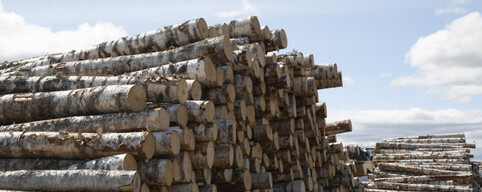

The timber trade between Australia and the United States stands as a significant aspect of their economic partnership, with both countries engaging in the exchange of wood and wood products. As the 21st largest trading partner, the dynamics of this trade are influenced by various policies, including tariffs introduced under the Trump administration. Despite these changes, Australia's timber trade continues to exhibit resilience and key trends that warrant attention.
The imposition of tariffs by former President Donald Trump's administration has had varying effects on international trade. Interestingly, Australia's timber industry appears more insulated from these tariffs compared to other sectors. While the tariffs induced fluctuations in trade volumes, the overall supply chain has maintained relative stability. This contrasts with other nations that experienced a more significant impact on their timber-related transactions with the US.
One reason for this insulation lies in the nature of timber trade, where Australian exporters enjoy certain strategic advantages. As tariffs mainly targeted manufactured goods, raw materials like timber faced less stringent barriers, allowing Australian exporters to retain access to US markets. Consequently, while tariffs added a 10% baseline on wood and wood products exported to the US, the overall impact remained manageable.
The resilience of Australia's timber trade amid these tariffs also underscores the importance of strategic trade partnerships and the ability to adapt to shifting policy landscapes. By focusing on long-term relationships and quality products, Australia's timber sector has navigated through tariff-impact challenges without significant disruptions.
Despite remaining relatively insulated from tariff shocks, the trade deficit in wood and wood products with the US is notable. In the previous year, Australia reported a trade deficit of AU $84.2 million with the US, a significant figure given the United States' stature as a major global producer of forest products. This deficit highlights the imbalance that exists in the timber trade relationship, with more imports heading to Australia than exports to the US.
In detail, Australia exported AU $9 million worth of wood and wood products to the US, representing a modest portion of the trade equation. Conversely, imports from the US were valued at AU $93.2 million, amounting to 3.5% of Australia's total wood product imports. This disparity signals a complex relationship driven by supply-demand dynamics and competitive pricing from US suppliers.
Evaluating market share further, exports to the US accounted for a mere 0.5% of Australia's total wood and wood product exports by value. This marginal percentage indicates that while the US remains a crucial partner, the export volume is relatively low compared to other destinations. Meanwhile, the low import-export trade deficit represents the least discrepancy seen in years, suggesting incremental progress in balancing bilateral timber trade relations.
The data analyzed by the Forest and Wood Products Australia (FWPA) Economics and Statistics Team, supported by IndustryEdge, offers insights into these trends. By closely monitoring trade flows and adapting strategies, both Australia and the US can continue to foster a mutually beneficial timber trade relationship, despite the challenges presented by tariffs and shifting economic conditions.
In conclusion, while the imposition of tariffs under Trump's administration introduced new challenges, the core trade partnership between Australia and the US demonstrates resilience and adaptability. By leveraging strategic insights and fostering robust trade networks, the timber trade between these nations remains a valuable component of their economic collaboration.



